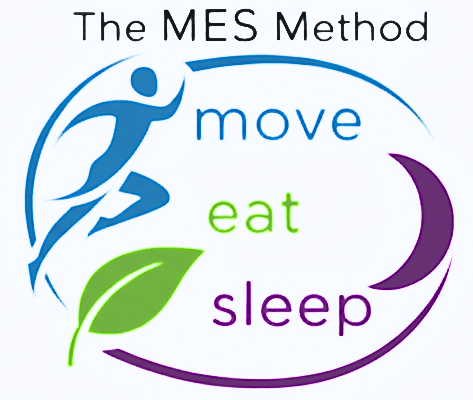I know how it feels to be on this journey. For me, it wasn’t just about the scale or the number on the tape measure, but about reclaiming my life. I went from 120kg (265 lbs) to 83kg (183 lbs), but the biggest shift was in my mindset. I stopped seeing food as a reward and started seeing it as fuel. I stopped drinking to numb feelings and started moving my body to feel alive.
The path is different for everyone, but the core principles of building healthy habits are often the same. I stumbled upon a fantastic discussion on Reddit where people shared their best five changes that helped them lose weight. It’s so powerful to hear from people who are walking the walk. I’ve sifted through the comments to pull out the most common and impactful themes that truly resonate with my own journey.
Here are the top changes that people consistently credit for their success. These aren’t just tips, they are foundational shifts that make a real, lasting difference:
1. Prioritize Protein and Fiber
When you’re trying to lose weight, the goal isn’t just to eat less, but to eat smarter. A high-protein, high-fiber diet is the ultimate cheat code for feeling full and satisfied without overdoing the calories.
- Why it works: Protein is essential for muscle repair and growth, but it’s also incredibly satiating. It takes longer to digest, which keeps you feeling full for longer. Fiber, especially from vegetables and whole grains, adds volume to your meals and slows down digestion, further contributing to that feeling of fullness.
- My take: Early in my journey, I used to think a salad was enough. But if it was just lettuce and a little dressing, I’d be starving an hour later. The moment I started adding grilled chicken, beans, or a boiled egg to my salads, everything changed. I stopped snacking on junk food because I wasn’t hungry all the time. It was a complete mindset shift, from “I need to eat less” to “I need to eat better.”
2. Calorie Tracking: The Non-Negotiable Tool
At the beginning, many people have no idea how many calories are in their “healthy” foods until they started tracking. This aligns perfectly with my experience. Calorie tracking is the foundation of intentional eating.
- Why it works: It’s like balancing a budget. You can’t manage your finances if you don’t know where your money is going. Similarly, you can’t manage your weight if you don’t know what you’re consuming. Tracking helps you become aware of hidden calories in dressings, sauces, and drinks. It also holds you accountable.
- My take: I used a simple app to log everything. At first, it felt like a chore, but it quickly became an eye-opener. I saw that my “healthy” smoothie was packed with hundreds of extra calories from juice and honey. That was a big “aha!” moment. It wasn’t about deprivation; it was about awareness. Once I knew the numbers, I could make informed choices without guessing.
3. Hydration Is King
This might seem simple, but drinking more water is a surprisingly effective tool. Many people confuse thirst with hunger, leading them to snack when all their body really needs is a glass of water.
- Why it works: Staying hydrated keeps your body functioning optimally. It helps with digestion, metabolism, and even energy levels. Drinking a glass of water before a meal can also help you feel fuller faster.
- My take: I used to drink soda and sugary juices all day. When I switched to water, I felt a huge difference almost immediately. I kept a big water bottle with me at all times and made it a habit to sip throughout the day. It cut out hundreds of liquid calories and helped me curb those “I need a snack” urges.
4. Find Movement You Actually Enjoy
Consistency is key, and the best way to be consistent is to find an activity you look forward to. For some, it was lifting weights; for others, it was walking, swimming, or dancing.
- Why it works: Exercise shouldn’t feel like a punishment. When you find an activity you love, it becomes a part of your life rather than a chore you dread. This makes it infinitely easier to stick with over the long term. It’s about building a sustainable routine.
- My take: I used to think I had to run miles on a treadmill to see results. I hated every second of it. My real transformation started when I found something I enjoyed: walking outdoors with a good podcast and later, lifting weights. Lifting made me feel strong and empowered. Find your thing and own it. Don’t let anyone tell you what you should be doing.
5. Prioritize Sleep and Stress Management
While diet and exercise are crucial, a major cheat for success is when you also address your sleep quality and stress levels.
- Why it works: Lack of sleep and chronic stress can wreak havoc on your hormones, specifically cortisol (the stress hormone) and ghrelin/leptin (the hunger hormones). When you’re tired or stressed, your body is more likely to crave high-calorie, sugary foods, and you’re less likely to have the willpower to make good choices.
- My take: This was a massive part of my own journey, especially coming from a background of unhealthy habits. I realized my late-night snacking was often fueled by stress and a lack of quality sleep. I started a wind-down routine, turning off screens an hour before bed, reading, and meditating—and the difference was night and day. Better sleep meant I had more energy for my workouts and more clarity to make healthy food choices.
Building a Foundation for Success
Looking at these five changes, a clear picture emerges. It’s not about one single trick or miracle cure. It’s about building a foundation of small, sustainable habits that support your body and mind. It’s about being intentional with your food, aware of your choices, and kind to yourself.
If you’re feeling overwhelmed, just pick one of these to focus on this week. Maybe it’s tracking your calories for a few days, or just drinking an extra glass of water. Small steps lead to big changes. You’ve got this. We’re in this together.

